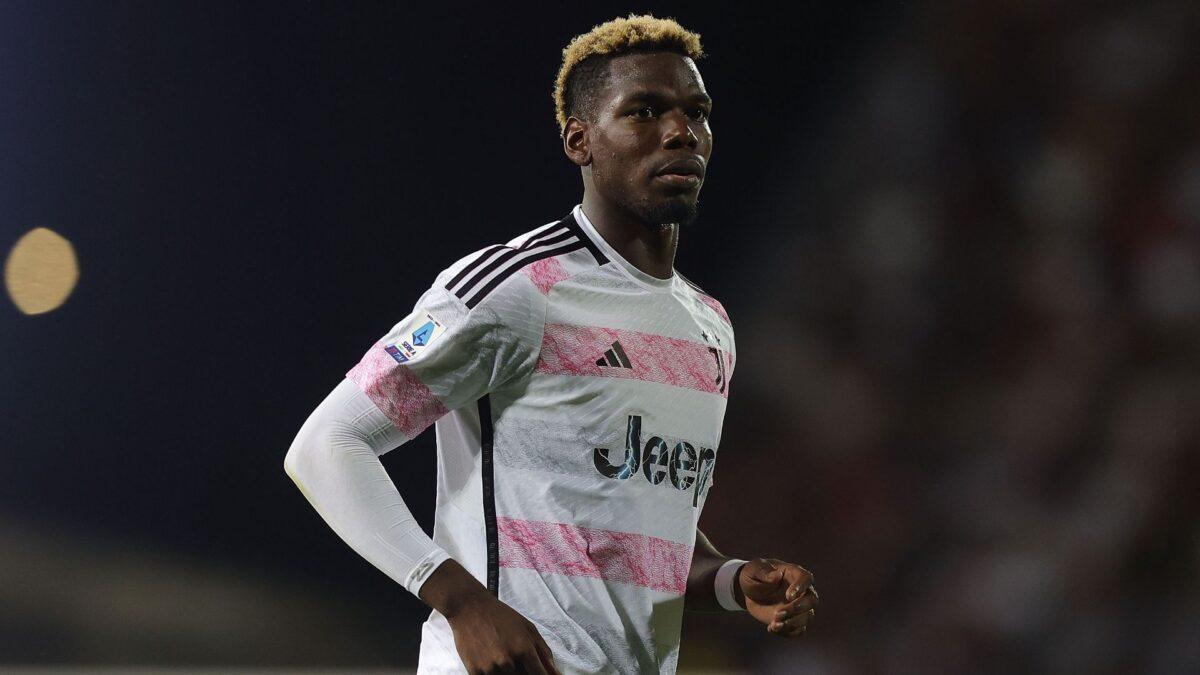The winner of the France World Cup would be able to resume his career in March 2025, according to the verdict.
Paul Pogba’s four-year doping suspension was shortened to eighteen months following his Court of Arbitration for Sport appeal.
When The Associated Press approached CAS on Friday, the organization verified prior reports that the suspension had been lowered. On the ruling, CAS provided no further details.
“The nightmare is finally over,” according to a statement from Pogba. “I can’t wait for the day when I can pursue my dreams once more in light of the Court of Arbitration for Sport’s ruling.”
The Juventus midfield player received the harshest sentence possible from Italy’s anti-doping court after testing positive for testosterone in August of last year.
At the time, Pogba appealed to the CAS in Switzerland, stating that “the verdict is incorrect.”
The international anti-doping rule stipulates that athletes face four-year bans, but this term can be shortened if they can demonstrate that their doping was accidental, if contamination caused the positive test, or if they offer the authorities “substantial assistance.”
He played a key role in France’s 2018 World Cup victory and signed a free agent contract with Juventus in 2022. But during his second stint at the club before to his ban, injuries restricted him to just eight Serie A games.
Following the announcement of the positive test in September of last year, Pogba was suspended.
He said, “I just can’t wait to get back on the pitch.”
Tactical pov
Pogba stands out for his vision as well as his ability to control the ball and dribble. He has no trouble moving in confined spaces, frequently drawing opponents to him before passing the ball to a colleague or taking a shot himself. He can successfully shield the ball thanks to his power and height, which makes him a dangerous opponent in one-on-one scenarios. He can hold possession under duress thanks to his physicality and dribbling combination, which is an important part of his tactical game.
Whether through a well-timed tackle or an interception, he excels at driving forward, either carrying the ball himself or making a quick pass to a teammate in a more advanced position. His understanding of when to push forward and when to hold back adds depth to his overall tactical awareness.
Another area where Pogba excels is with set pieces. He poses a serious threat during corners and free kicks because to his height and skill, both as a target and as a deliverer. Because of this aspect of his game, he can score more points and is a great asset when there are dead balls.
Even though he is frequently praised for his offensive prowess, Pogba plays strong defense as well. To assist his defense, he tracks back, makes tackles, and puts pressure on opponents. Being able to disrupt opposing plays with his physicality and knowledge makes him a versatile midfielder who can make an impact on both ends of the field.
As the case progressed, it became evident that Pogba’s situation was not just a personal struggle but also part of a larger conversation about athlete welfare, the pressures of professional sports, and the complexities of doping regulations. Ultimately, his suspension was reduced to eighteen months after a thorough review, allowing him to return to the game sooner than initially anticipated.
The case raised questions not only about Pogba’s future but also about the broader implications for athletes regarding doping regulations. Pogba’s team maintained his innocence, arguing that the substance found in his system could have originated from a contaminated supplement.
Pogba’s story should serve as a lesson to athletes of all levels about the value of being aware of the chemicals they ingest and the potential repercussions of unintentional doping offenses.
